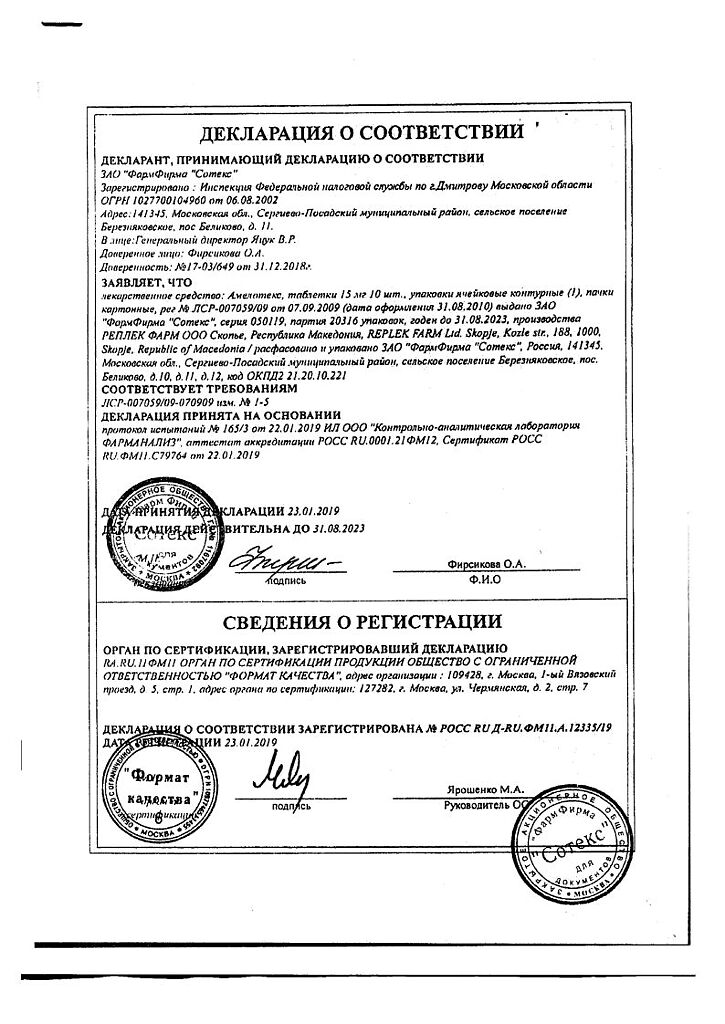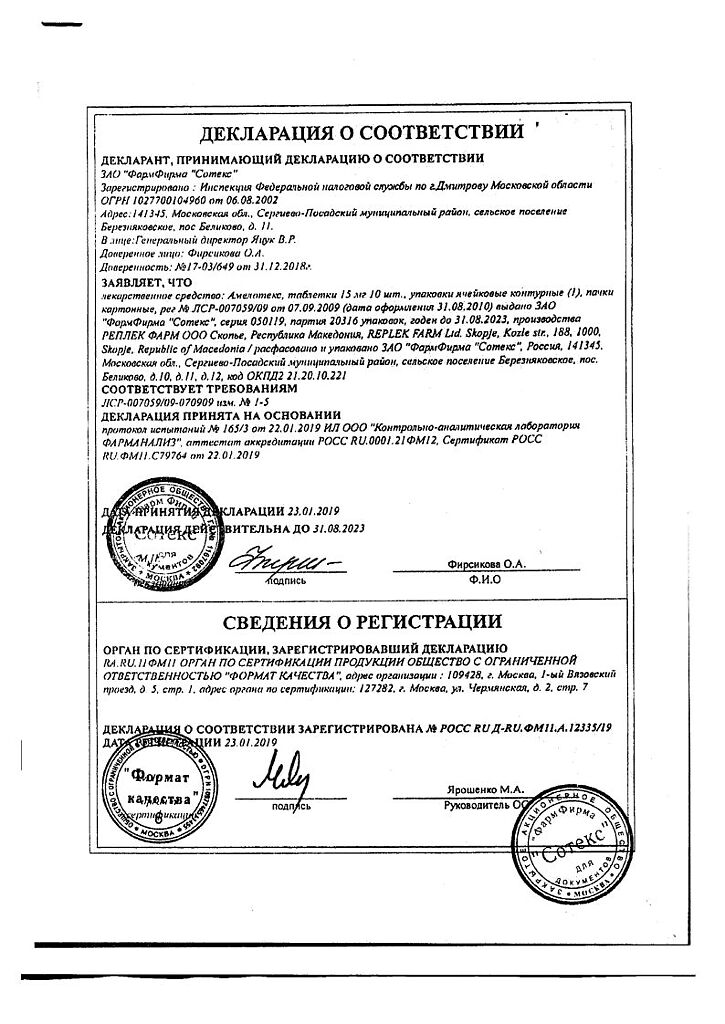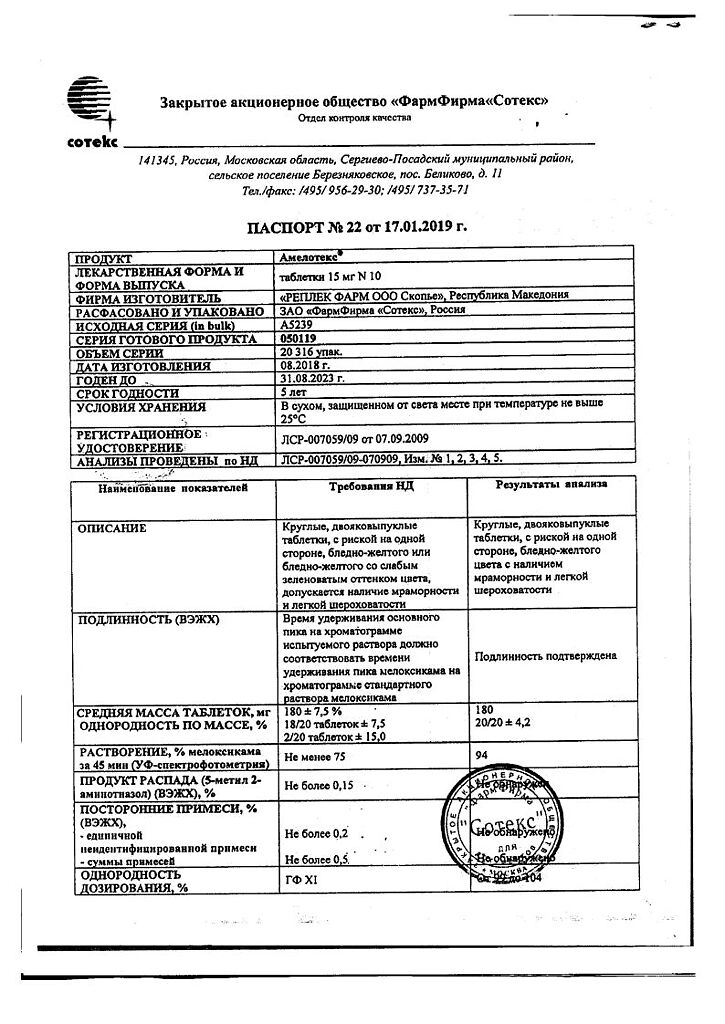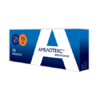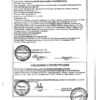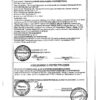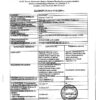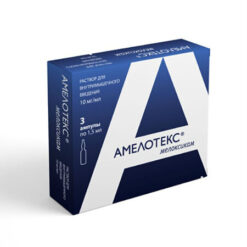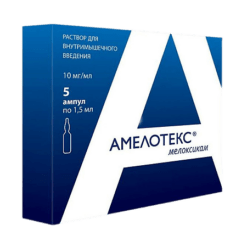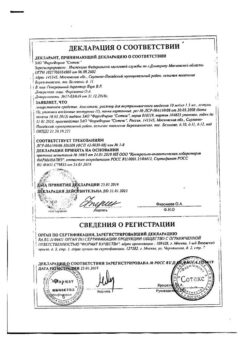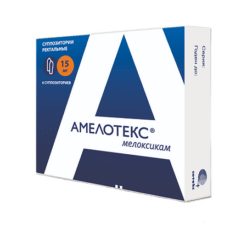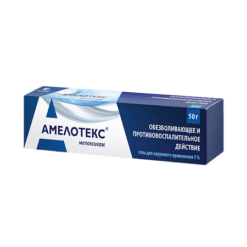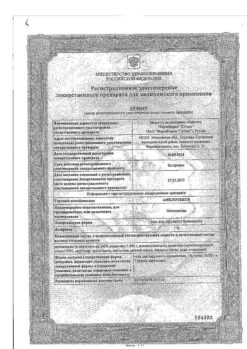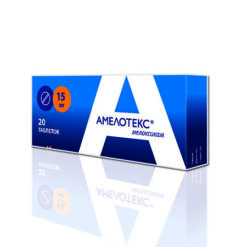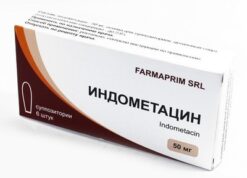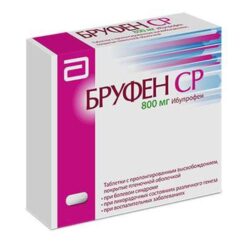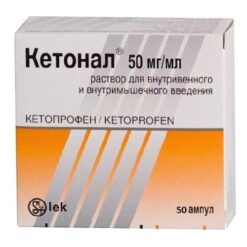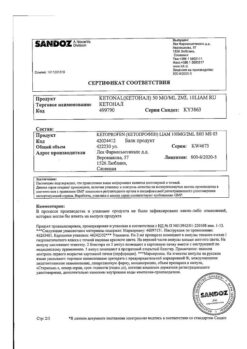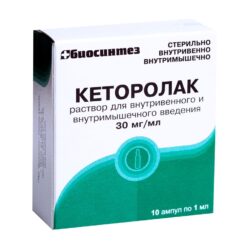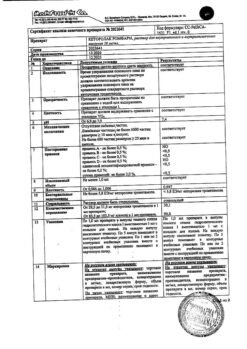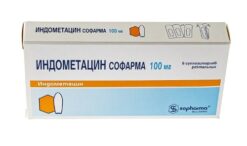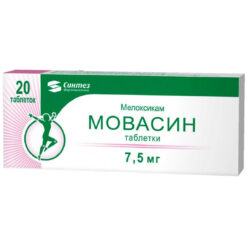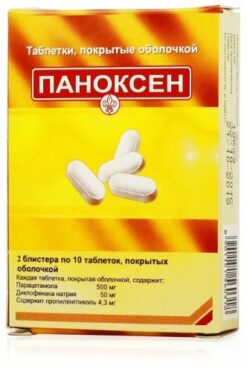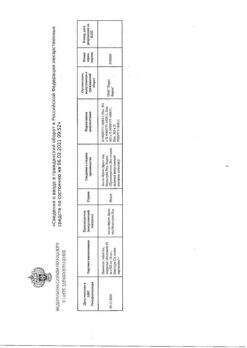No products in the cart.
Amelotex, tablets 15 mg 10 pcs
€9.66 €8.45
Description
Pharmgroup:
NSAIDs.
Pharmic action:
Amelotex is a non-steroidal anti-inflammatory drug with anti-inflammatory, antipyretic, analgesic action.
Selectively inhibits the enzymatic activity of cyclooxygenase-2. Suppresses the synthesis of prostaglandins in the area of inflammation to a greater extent than in the mucosa of the stomach or kidneys. Less often causes erosive-ulcerative lesions of the gastrointestinal tract.
Related to the class of oxycams; a derivative of enolic acid.
Pharmacokinetics:
The binding to plasma proteins is 99%. Passes through the histohematic barriers, penetrates the synovial fluid. Concentration in synovial fluid reaches 50% of the maximum concentration in plasma.
Extracted equally through the intestines and kidneys, mainly as metabolites. Less than 5% of daily dose is excreted unchanged in intestine, in urine the drug is excreted unchanged only in trace amounts.
Half-life period (T1/2) of meloxicam is 15-20 hours. Plasma clearance averages 8 ml/min. The drug clearance is decreased in elderly patients. The volume of distribution is low and averages 11 l.
Hepatic or renal insufficiency of moderate severity has no significant effect on the pharmacokinetics of meloxicam.
Indications
Indications
osteoarthritis;
rheumatoid arthritis;
ankylosing spondylitis (ankylosing spondylitis);
inflammatory and degenerative diseases of the joints, accompanied by pain.
Pharmacological effect
Pharmacological effect
Pharmaceutical group:
NSAIDs.
Pharmaceutical action:
Amelotex is a non-steroidal anti-inflammatory drug that has anti-inflammatory, antipyretic, and analgesic effects.
Selectively inhibits the enzymatic activity of cyclooxygenase-2. Suppresses the synthesis of prostaglandins in the area of inflammation to a greater extent than in the gastric mucosa or kidneys. Less commonly causes erosive and ulcerative lesions of the gastrointestinal tract.
Belongs to the class of oxicams; enolic acid derivative.
Pharmacokinetics:
Communication with plasma proteins – 99%. Passes through histohematic barriers and penetrates into the synovial fluid. The concentration in synovial fluid reaches 50% of the maximum concentration in plasma.
It is excreted equally through the intestines and kidneys, mainly in the form of metabolites. Less than 5% of the daily dose is excreted unchanged through the intestines; the drug is found unchanged in urine only in trace amounts.
The half-life (T1/2) of meloxicam is 15-20 hours. Plasma clearance averages 8 ml/min. In elderly people, drug clearance is reduced. The volume of distribution is low and averages 11 liters.
Hepatic or renal failure of moderate severity does not have a significant effect on the pharmacokinetics of meloxicam.
Special instructions
Special instructions
If peptic ulcers or gastrointestinal bleeding occur, or side effects on the skin and mucous membranes develop, the drug should be discontinued. In patients with a decrease in circulating blood volume and reduced glomerular filtration (dehydration, chronic heart failure, surgery), clinically pronounced chronic renal failure may occur, which is completely reversible after discontinuation of the drug (in such patients, daily diuresis and renal function should be monitored at the beginning of treatment).
If there is a persistent and significant increase in transaminases and changes in other indicators of liver function, the drug should be discontinued and control tests performed.
In patients with an increased risk of side effects, treatment begins with a dose of 7.5 mg. In end-stage chronic renal failure in patients on dialysis, the dose should not exceed 7.5 mg/day.
During the treatment period, care must be taken when driving vehicles and engaging in other potentially hazardous activities that require increased concentration and speed of psychomotor reactions (if dizziness and drowsiness occur).
Active ingredient
Active ingredient
Meloxicam
Composition
Composition
1 tablet contains:
active ingredient:
meloxicam 15 mg
excipients:
lactose monohydrate 71.22 mg,
microcrystalline cellulose 55.8 mg,
sodium citrate 18 mg,
povidone 5.4 mg,
crospovidone 10.8 mg,
colloidal silicon dioxide 1.44 mg,
magnesium stearate 2.34 mg.
Pregnancy
Pregnancy
Amelotex is contraindicated in children under 15 years of age, during pregnancy and breastfeeding.
Contraindications
Contraindications
Hypersensitivity to the active substance or auxiliary components;
Contraindicated in the period after coronary artery bypass grafting;
uncompensated heart failure;
Complete or incomplete combination of bronchial asthma, recurrent polyposis of the nose and paranasal sinuses and intolerance to acetylsalicylic acid and other non-steroidal anti-inflammatory drugs (including a history);
Erosive and ulcerative changes in the mucous membrane of the stomach or duodenum, active gastrointestinal bleeding;
Inflammatory bowel diseases (ulcerative colitis, Crohn’s disease);
Cerebrovascular bleeding or other bleeding;
Severe liver failure or active liver disease;
Severe renal failure in patients not undergoing dialysis (creatinine clearance less than 30 ml/min), progressive kidney disease, incl. confirmed hyperkalemia;
Pregnancy, breastfeeding period;
Children under 15 years of age.
With caution
To reduce the risk of adverse events, the minimum effective dose should be used in the shortest possible short course for coronary heart disease, cerebrovascular diseases, congestive heart failure, dyslipidemia/hyperlipidemia, diabetes mellitus, peripheral arterial disease, smoking, creatinine clearance less than 60 ml/min, anamnestic data on the development of ulcerative lesions of the gastrointestinal tract, in the presence of Helicobacter infection pylori, in old age, with long-term use of non-steroidal anti-inflammatory drugs, frequent alcohol consumption, severe somatic diseases, concomitant therapy with the following drugs: anticoagulants (for example, warfarin), antiplatelet agents (for example, acetylsalicylic acid, clopidogrel), oral glucocorticosteroids (for example, prednisolone), selective serotonin reuptake inhibitors (for example citalopram, fluoxetine, paroxetine, sertraline).
Side Effects
Side Effects
From the digestive system: nausea, vomiting, belching, abdominal pain, constipation or diarrhea, flatulence, increased activity of liver transaminases, hyperbilirubinemia, stomatitis, erosive and ulcerative lesions of the gastrointestinal tract, esophagitis, gastritis, colitis, perforation of the gastrointestinal tract, gastrointestinal bleeding (latent or obvious), hepatitis
From the nervous system: dizziness, vertigo, headache, tinnitus, confusion, drowsiness, disorientation, emotional lability.
From the respiratory system: bronchospasm.
From the hematopoietic organs: anemia, leukopenia, thrombocytopenia.
From the cardiovascular system: peripheral edema, increased blood pressure, “flushes” of blood to the skin of the face and upper chest, palpitations.
From the urinary system: edema, hypercreatininemia, increased concentration of urea in the blood serum. In rare cases – acute renal failure, interstitial nephritis, albuminuria, hematuria.
From the senses: conjunctivitis, visual impairment, incl. blurred vision.
From the skin: itching, skin rash, urticaria, photosensitivity, bullous rashes, erythema multiforme, toxic epidermal necrolysis.
Allergic reactions: angioedema, anaphylactoid, anaphylactic reactions.
Storage conditions
Storage conditions
In a place protected from light at a temperature of 8 to 25 ° C. Do not store in the refrigerator.
Manufacturer
Manufacturer
Replek Farm, Republic of North Macedonia
Additional information
| Conditions of storage | In the dark place at a temperature of 8 to 25 ° C. Do not store in the refrigerator. |
|---|---|
| Manufacturer | Replek Farm, Republic of Northern Macedonia |
| Medication form | pills |
| Brand | Replek Farm |
Other forms…
Related products
Buy Amelotex, tablets 15 mg 10 pcs with delivery to USA, UK, Europe and over 120 other countries.


